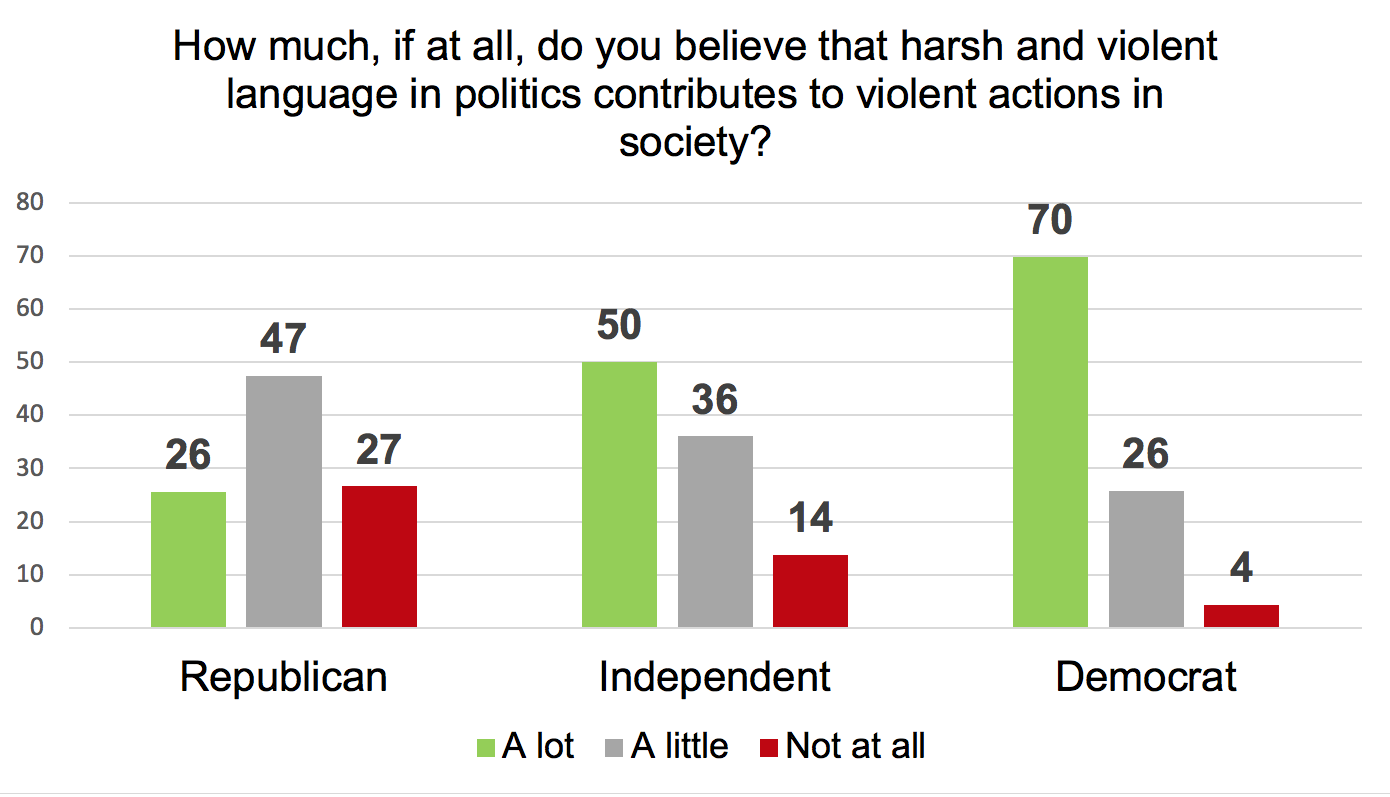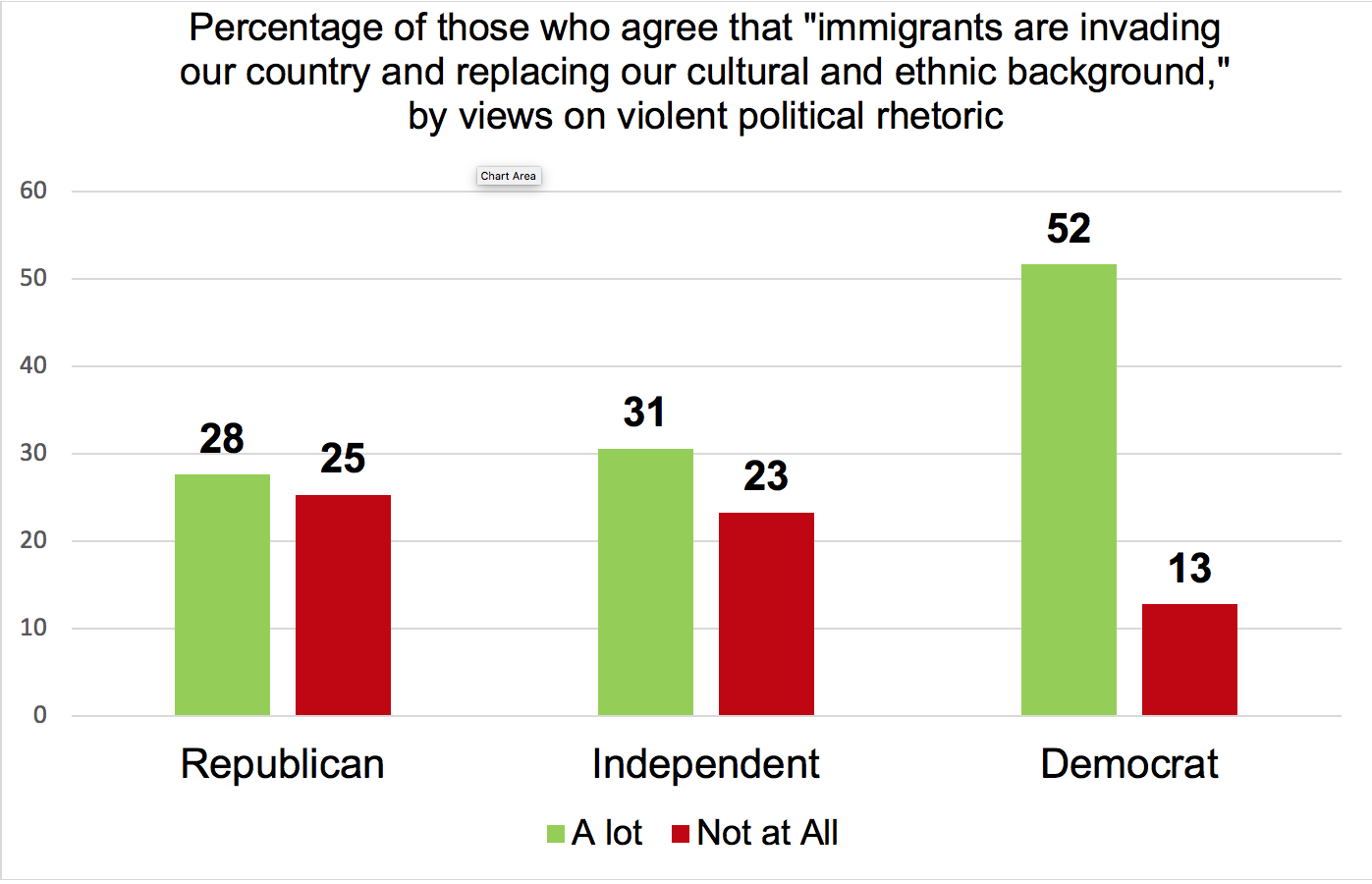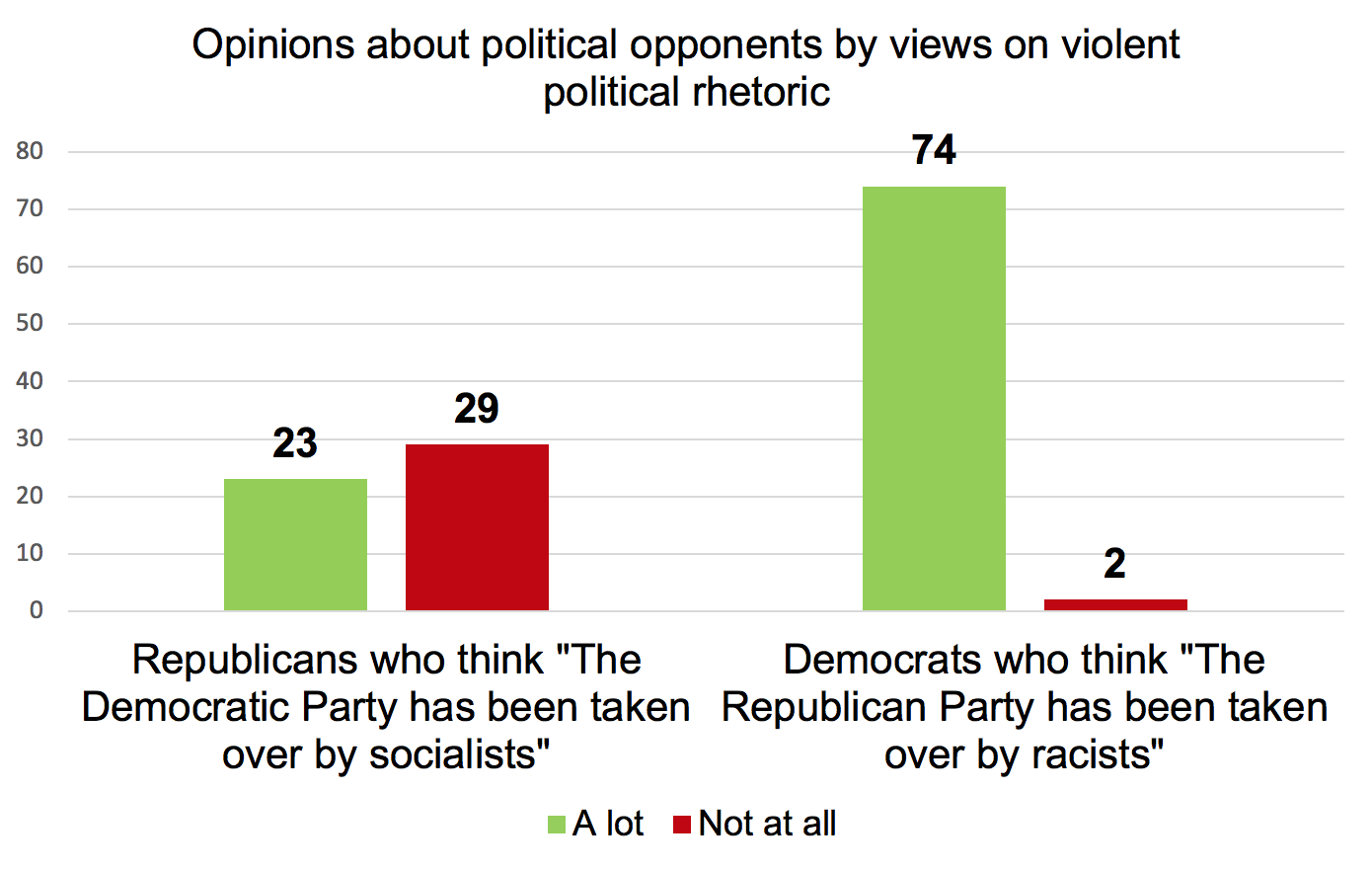Violent and dehumanizing political rhetoric has been shown to make people more willing to endorse violence, suggesting that the use of violent language could desensitize Americans to the incidence of real violence. President Trump’s continuous use of such rhetoric against political opponents and immigrants, including comparing refugees with “animals,” could be dangerous, especially if it creates an environment of tolerating violent language— and even outright violence—in American society. Partisan divisions regarding how harsh and violent language in politics impact society and views of immigrants offer some insight into how these opinions and Trump’s rhetoric might be connected.
PRRI’s 2019 American Values Survey asked how much Americans believe that harsh and violent language in politics contributes to violent actions in society. The data shows significant differences in partisanship. While half of Americans (50%) believe that harsh and violent language in politics contributes a lot to violent actions in society in 2019, these views differ by political affiliation. Most Democrats (70%) and half of independents(50%) believe that harsh language contributes a lot to violent actions in society, while the same is true among one in four Republicans (26%). In fact, Republicans (27%) are notably more likely to say that harsh and violent language in politics does not contribute at all to violence, compared to 14% of independents and 4% of Democrats.

Differences become more salient when these views are correlated with other views such as immigration. President Trump’s infamous references to refugees as “animals,” to Mexican immigrants as “rapists,” and to immigrants in general as “invaders,” elicited strong reactions among the American public. The PRRI data shows how partisans react differently to the concept of immigrants as invaders.
When Americans were asked to what extent they agree or disagree with the statement that “immigrants are invading our country and replacing our cultural and ethnic background,” the majority of Americans (62%) say they don’t agree, compared to 36% who completely or mostly agree. Yet, among this latter group, Republicans (25%) are significantly more likely to say that harsh and violent language in politics does not contribute at all to violent actions in society, compared to 13% of Democrats who believe the same. Most interestingly, Republicans do not differ in their views about violent political rhetoric when thinking about immigrants. Regardless if they agree or disagree with the statement that immigrants are invading the United States and changing its cultural and ethnic background, about one in four Republicans think that violent political rhetoric doesn’t matter. This is also true whether Republicans watch Fox News or not.

For Democrats and independents, there are notable differences. Democrats (52%) and independents (31%) who agree that immigrants are invading the country are significantly more likely to report that harsh and violent language in politics contributes a lot to violent acts in society, compared to 23% of independents and 13% of Democrats who don’t think violent political rhetoric matters. These percentages are even smaller among those who don’t agree with the statement that “immigrants are invading our country and replacing our cultural and ethnic background” (9% and 2%, respectively).

PRRI also asked about what the public think about their political opponents. Once again there are differences by partisanship on views about the impact of violent political rhetoric. For example, when Republicans were asked about their views about the Democratic Party, among those (82%) who responded that “the Democratic Party has been taken over by socialists,” about one-third of Republicans (29%) reported that harsh and violent language does not contribute at all to violent acts in society, compared to about one in four (23%) Republicans who thought that it contributes a lot. Interestingly, the survey also asked Americans views about the Republican party. When asked about their views about the Republican Party, among Democrats (80%) who responded that “the Republican Party has been taken over by racists,” only 2% report that violent political rhetoric doesn’t matter. A vast majority of Democrats (74%) in this group believe that harsh and violent language contributes a lot to violent acts in society.
There are also differences in views about the impact of political rhetoric by gender and religious affiliation. Men (17%) are more likely than women (12%) to say that harsh and violent language in politics does not contribute at all to violent actions in society. Also, white Christians (19%) are more likely than nonwhite Christians (12%), non-Christians (10%), and the religiously unaffiliated (10%) to say that violent political rhetoric does not contribute at all to violent acts in society.